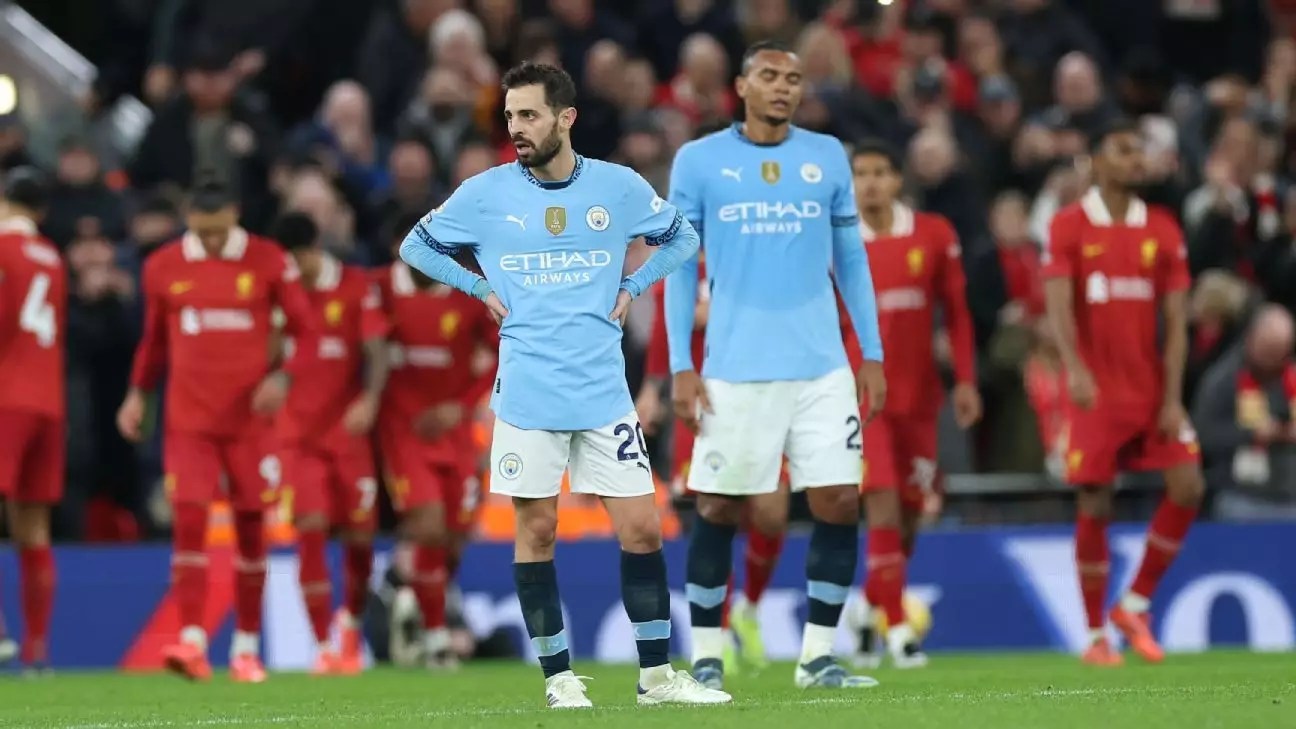The modern landscape of football often revolves around the cyclical nature of success and decline. As teams achieve greatness, there comes a time when they must grapple with the inevitable diminishing returns of their previous glory. This stark reality is now unfolding at Manchester City, a club that once exemplified dominance in both domestic and European competitions. The trajectory that City currently finds itself on serves as a cautionary tale reminiscent of other illustrious teams that have struggled with the complexities of maintaining their positions at the top.
History has shown that the world’s most successful clubs can fall victim to their own triumphs, clinging to outdated notions that past successes guarantee future outcomes. Manchester United serves as a notable example. Following the illustrious management of Sir Alex Ferguson, the Red Devils believed that the legacy he left behind would catalyze a swift return to glory. Yet, more than a decade later, the team remains in the shadows, struggling to replicate the heights they once reached.
Similarly, Liverpool witnessed a prolonged struggle following their magnificent run in the late 20th century. Overconfidence in their prior achievements led to significant miscalculations in player acquisitions and subsequent decline, culminating in a 30-year absence from championship glory. These examples highlight a critical truth in football: past triumphs alone do not sustain success.
Manchester City is now facing an alarming reality that became evident during their recent 2-0 defeat against Liverpool. This loss marked a painful moment for a side that once basked in the glow of six league titles in seven seasons and celebrated a Champions League triumph. Instead, they are left with the disconcerting statistic of having lost six out of their last seven matches. As the shadows of their former prowess linger, the current team appears drastically altered from the well-oiled machine that once dazzled fans and opponents alike.
The aging roster of players, including pivotal figures like İlkay Gündoğan and Kevin De Bruyne, unveils a core issue within the squad. Age takes a toll, and the energy that propelled City to success is rapidly dissipating. The integration of younger talent into the team is essential for sustaining success, yet the current phase appears to be marked by poor recruitment strategies and missed opportunities for succession.
What Manchester City must confront is the hauntingly familiar pattern of neglecting the necessity for rejuvenation. Both Liverpool and Manchester United faced significant declines due to similarly misguided beliefs in their importance to the continued success of their clubs. Players past their prime were overly relied on, while fresh talent was either not sufficiently invested in or carelessly allowed to slip away to rivals.
City’s recent transfer decisions exemplify a concerning trend of complacency. The re-signing of Gündoğan, despite his advancing age and return from a less competitive league, raises questions about the club’s foresight in recruitment. The club’s off-field troubles, including ongoing investigations into financial irregularities, further limit their ability to attract and retain new talent—and a vital ingredient in competitive football is foresight and adaptability.
Although City’s struggles seem formidable, there is still potential for recovery. The key lies in acknowledging the shortcomings and implementing strategic changes promptly. The club must identify and cultivate younger players who can seamlessly integrate into the system, providing the necessary energy and dynamism to support their aging stars. There also needs to be an immediate focus on scouting and building a roadmap for future success—a roadmap that prioritizes adaptability and renewal over nostalgia.
Letting promising talents like Cole Palmer and others leave the systems only exacerbates the challenges ahead. Those young players could play a pivotal role in transitioning the team towards a new age of success.
The current situation at Manchester City serves as a critical reminder of football’s cyclical nature. The challenges facing the team today echo the struggles once experienced by other footballing giants, emphasizing the importance of vigilance and adaptability. The decline that once seemed unthinkable has, in fact, been a long time coming, and City must endeavor to learn from history rather than be bound by it. As they navigate through uncertain waters, there lies an opportunity to renew, rebuild, and reclaim their preeminence in the game. The future of football is never guaranteed, but action taken today can redefine a club’s trajectory tomorrow.


Leave a Reply